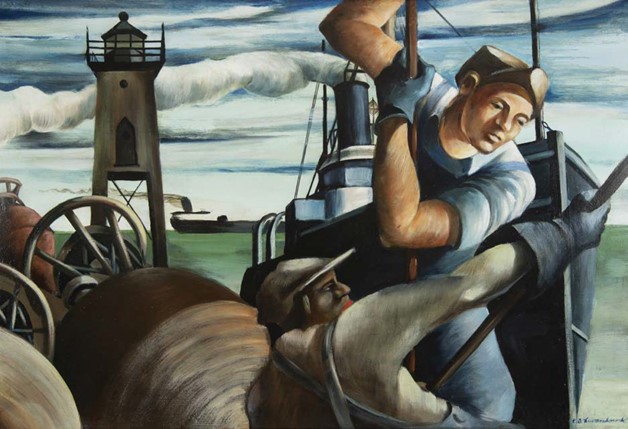Note: If you wish to receive, via e-mail, (1) my weekly newsletter or (2) daily copies of these posts, write to me at [email protected]. Comments may also be sent to this address. I promise not to share your e-mail with anyone. To unsubscribe, write here as well.
Thursday – International Workers Day
As Donald Trump attempts to bring back the Gilded Age, assaulting union rights and workplace protections, and as various red states roll back child labor laws, International Workers’ Day takes on increased importance. The holiday has its origins in the general strike of 1884, where up to half a million workers nationwide demonstrated in favor of a 40-hour work week (down from 60).
On Saturday, May 1 of that year, Chicago’s Haymarket Square was the scene of an immense rally. While that day was peaceful, violence broke out in the days that followed and multiple people were killed. In the end, seven workers were sentenced to death in what was later regarded as a miscarriage of justice. The first International Workers’ Day memorialized Haymarket on May 1, 1890, with rallies held all over the world.
In “Questions from a Worker Who Reads,” Bertolt Brecht reminds us—as International Workers’ Day reminds us—of the forgotten workers upon whom society rests. Workers must read, the poem implies, in order to understand their part in the process.
Questions from a Worker Who Reads
By Bertolt Brecht
Who built Thebes of the 7 gates?
In the books you will read the names of kings.
Did the kings haul up the lumps of rock?
And Babylon, many times demolished,
Who raised it up so many times?
In what houses of gold glittering Lima did its builders live?
Where, the evening that the Great Wall of China was finished, did the masons go?
Great Rome is full of triumphal arches.
Who erected them?
Over whom did the Caesars triumph?
Had Byzantium, much praised in song, only palaces for its inhabitants?
Even in fabled Atlantis, the night that the ocean engulfed it,
The drowning still cried out for their slaves.
The young Alexander conquered India.
Was he alone?
Caesar defeated the Gauls.
Did he not even have a cook with him?
Philip of Spain wept when his armada went down.
Was he the only one to weep?
Frederick the 2nd won the 7 Years War.
Who else won it?
Every page a victory.
Who cooked the feast for the victors?
Every 10 years a great man.
Who paid the bill?
So many reports.
So many questions.
The poem may well have influenced a poem on Machu Picchu by Pablo Neruda, which I have written about in the past. Neruda shares Brecht’s working class sympathies so that, while he is in awe of the architectural accomplishment, he too pays attention to the forgotten workers:
Machu Picchu, did you lift
stone upon stone on a groundwork of rags?
coal upon coal and, at the bottom, tears?
fire-crested gold, and in that gold, the bloat
dispenser of this blood?Let me have back the slave you buried here!
I come to speak for your dead mouths.
Speak through my speech and through my blood.
“There is no document of civilization that is not at the same time a document of barbarism,” Walter Benjamin famously stated. Then again, those civilizations that will flourish in the future will be those that do right by their workers.


